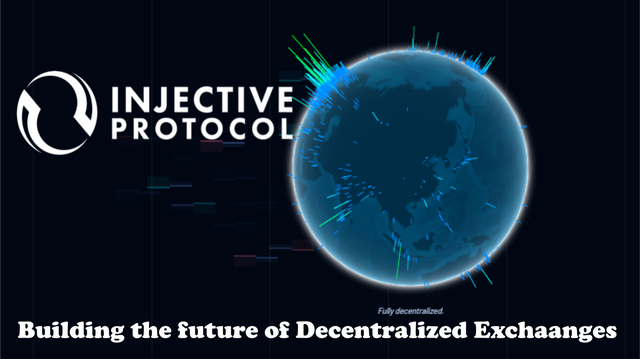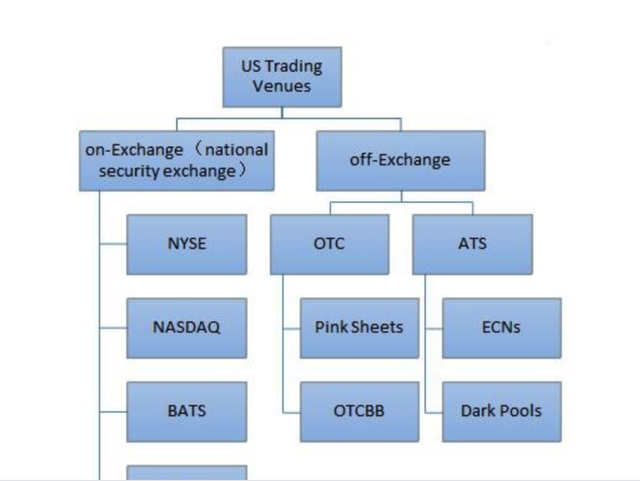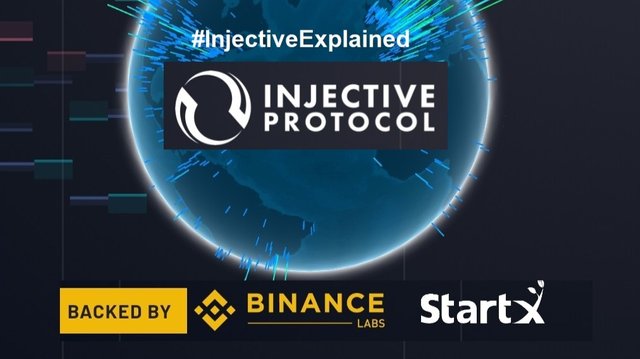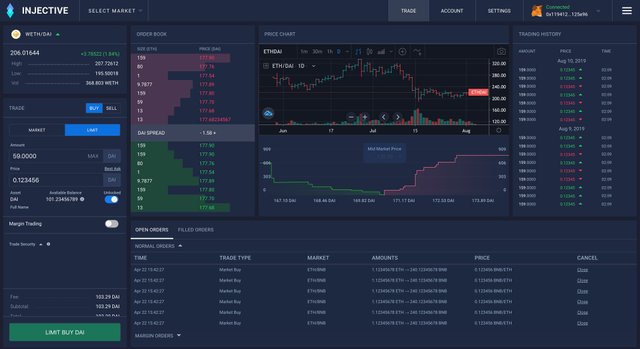
The injective protocol is an important "evidence" of Injective. It is an open protocol that supports the development of open derivatives markets. It is also the world's first fully decentralized P2P futures and perpetual swap contracts exchange, which supports simple access to various markets.
According to the team, compared with other products of the same type, Injective is the fastest, fully decentralized derivatives trading platform without gas fees in the Defi market.
Based on the Injective chain, Injective's trading platform has also achieved a fully open-source design, which allows it to be a completely decentralized network.
It also provides a market-maker friendly API interface, which is close to the current mainstream exchange interface, allowing the user experience to be similar to that of a centralized exchange. Additionally, in the management.
Internet finance and the digital age

In this century, human civilizations have made significant progress in digitizations. In just two decades, the internet has gone through three ages: the age of the portal, the age of search/social, and the age of the internet. The continuous development of the internet has altered and revolutionized the ways that humans think, behave, and interact.
Now as "data" continues to evolve as it gets produced, stored, organized, and utilized on higher levels, we start to see a new system with new rules slowly penetrating and seizing our world, that more justice, fairness, value accruals, and distributions have been demanded by all.
Given the above, that is why we are witnessing the "decentralization" of matters taking place and being facilitated more passionately than ever by the general populace.
Now as things and people get connected and integrated into an "unseen network," the characteristics of blockchain decentralization or however you call it, have become extremely incentivizing for people to act and innovate upon.
Specifically, works have been done on all layers of the internet from, again, data productions, storage, to applications (dApps), and of course along with all the innovations come with innovative business models and even "token economies."
Among the diverse applications of blockchain technologies, Defi, or decentralized finance has been one of the most hyped recently given the room of imagination and schemes like liquidity mining.
Traditionally even though we did see the boom of internet finance in the past years ranging from payments, crowdfunding, neo-banks, P2P lending and more, however, non has provided the current anticipation of "evolution" but instead just "iteration," as they did not change the rules and systems.
The development and current status of traditional exchanges

An exchange is a trading platform with diverse products, which provides price discovery and liquidity for traded products. Technological advancements have facilitated and effected also the business model and infrastructure of the exchanges.
Not many people stand in offline market places and shout out the prices of their goods to attract buyers nowadays, but try to get their goods sold through electronic trading systems. In terms of the business model, most exchanges in Europe and the United States have gone from membership-based to form for-profit companies.
As the hub of financial activities, the development of exchanges is heavily affected by regulatory policies. However, as technology develops, regulations loosen, and business competitions carry on, Alternative Trading System has emerged since 1990 in the US Multilateral Trading Facility, adding flexibility and diversity to the financial world.
The progress of exchanges based on blockchain technology
With the application of blockchain technology in asset tokenization and the trading of it, many digital asset exchanges have emerged, such as Binance, Coinbase, Bitmex, etc. These well-known exchanges are also classified as centralized exchanges in the blockchain and digital asset industry.
Centralized exchanges, as the name suggests, means that the assets deposited by the users are stored in the hands of the exchange owners, and matching of trades and even prices of products are subject to centralized controls operated on centralized servers. In other words, we, as users, do everything on the platform based on our trust in the team and institution running it.
In comparison, the essence of decentralized exchanges is to allow users assets to be under decentralized custody, with every transaction record stored on the blockchain giving transparency and traceability. Simply put, this whole decentralization is meant to prevent malicious human behaviors and to facilitate users to trust in codes and technology instead of other human beings. Let's probe further in details:
Decentralized Exchange utility works

With the advancement of blockchain technology and the emergence of more public blockchains, there are now a variety of decentralized exchanges. DEXes are different because of the diverse public blockchains they are based on and their respective concepts and technologies. Here we only discuss the decentralized exchanges about the general traits.
One of the key aspects of decentralized exchanges is that the exchange accounts equate to smart contract accounts. In brief, storing assets on DEX is to store them in smart contracts which is to store them in codes, and in codes you trust.
Generally, most DEXes will only ask for registration some even require KYC, and it has been criticized for a platform to call itself a DEX whilst asking for KYC and to deposit, withdraw, and trade:
- Deposit
you deposit by transferring your assets into the smart contract address assigned to you by the platform.
- Withdraw
withdraw from anywhere directly from the smart contract address.
- Trading
your asset is transferred from the smart contract address directly to that of your counterparty. This transfer can be checked on the blockchain through the blockchain browser, and the entire transfer process relies on the smart contract's automatic execution by codes.
DEXes can be further divided into two focuses: spot and derivative markets. Most of the DEXes in existence focuses on the spot markets, and are not many derivatives DEXes given the complexity of financial designs development workloads.
However it has become palpably clear that derivatives markets have grown exponentially in the digital asset domain, and we are already seeing the next
boom coming from derivatives trading. Few strong contenders that have emerged in 2020 include Injective Protocol, DerivaDEX, and Serum. Here let's explore Injective Protocol, which will be launched in August.
To resolve common issues faced by DEXes such as user-friendliness, speed, and more, the Injective Protocol proposes a global solution: Injective chain, Injective derivatives protocol, and Injective DEX.
Thank you see you in another article!
Official Website: https://injectiveprotocol.com
Bounty Link : https://bitcointalk.org/index.php?topic=5256993
Telegram: https://t.me/joininjective
Whitepaper Link: https://docsend.com/view/zdj4n2d
Github: github.com/InjectiveLabs
Twitter: https://www.twitter.com/@InjectiveLabs
Reddit: https://www.reddit.com/r/injective